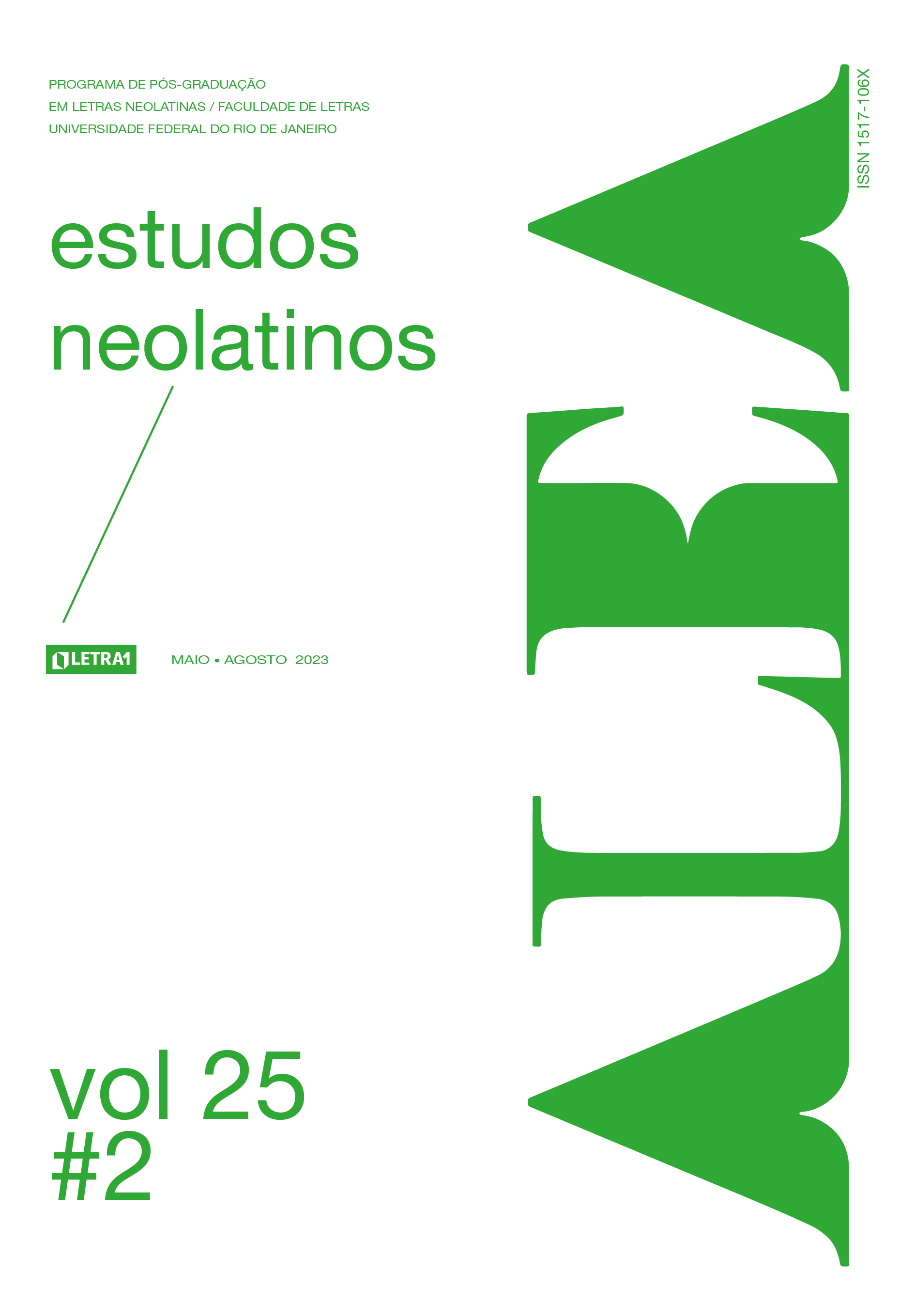JUSTICIA BIOGRÁFICA: LOS ENSAYOS DE CÉSAR AIRA SOBRE OSVALDO LAMBORGHINI Y ALEJANDRA PIZARNIK
Abstract
En El ensayo y su tema (2001), César Aira resume lo fundamental del ensayo en la elección temática, tanto que, si fuera cierto -arriesga- “se escribiría solo” (AIRA, 2001, p. 9). La afirmación es una boutade, una más en la lista utópica del arte que se haría solo, pero, aun así, o por esto mismo, ¿qué podría querer decir? A partir de aquí, se intentará articular un recorrido por los ensayos biográficos que César Aira escribió sobre Osvaldo Lamborghini (“Prólogo” a Novelas y Cuentos de Ediciones del Serbal, 1988) y Alejandra Pizarnik (Alejandra Pizarnik, Beatriz Viterbo, 1998, y Alejandra Pizarnik. 1936- 1972, Ediciones Omega, 2001) bajo la hipótesis de que, al hacerlo, no sólo ejecuta el dispositivo borgeano de reactivación de la literatura argentina cuyo modelo encuentra en el Evaristo Carriego (1930) de Borges, sino, además, instituye un “acto de justicia” respecto de la leyenda negra que los rodeó. En la medida en que el “mito personal” -o “fábula del estilo”- opera una neutralización de esa leyenda, una “mediación” entre vida y literatura, Aira parece ir ajusticiando a lectores y exégetas crédulos, biógrafos ladinos, todos ellos cristalizadores y perpetuadores de una imagen equivocada convenida por una hermenéutica inocente, como si asumiera el perfil atenuado de un defensor que esgrime argumentos biográfico-literarios y acude, desprejuiciado, al recuerdo de los amigos que desde el comienzo se supieron póstumos.Downloads
##submission.downloads##
Pubblicato
Fascicolo
Sezione
Licenza
O/A/S AUTOR/A/S confirma/m sua participação em todas as etapas de elaboração do trabalho: 1) Concepção, projeto, pesquisa bibliográfica, análise e interpretação dos dados; 2) Redação e revisão do manuscrito; 3) Aprovação da versão final do manuscrito para publicação; 4) Responsabilidade por todos os aspectos do trabalho e garantia pela exatidão e integridade de qualquer parte da obra. O envio dos trabalhos implica a cessão imediata e sem ônus, por parte de todos os autores, dos direitos de publicação para a revista Alea, a qual é filiada ao sistema CreativeCommons, atribuição CC-BY (https://creativecommons.org/licenses/by/4.0/). Os autores são integralmente responsáveis pelo conteúdo do artigo e continuam a deter todos os direitos autorais para publicações posteriores do mesmo, devendo, se possível, fazer constar a referência à primeira publicação na revista. Alea não se compromete a devolver as contribuições recebidas. Autores de artigos, resenhas ou traduções receberão um exemplar da revista.

